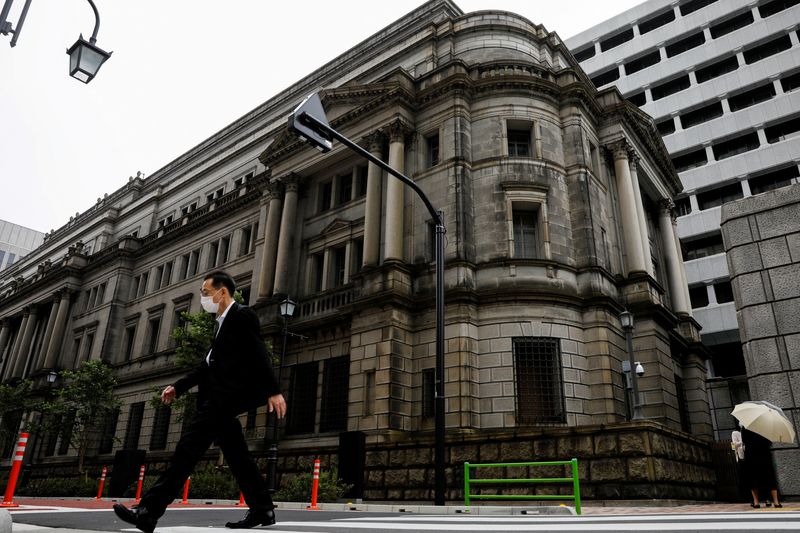By Divya Chowdhury
MUMBAI (Reuters) - The Bank of Japan could target a more flexible monetary policy after the departure of dovish Governor Haruhiko Kuroda next April, former BOJ policy board member Takahide Kiuchi said on Thursday.
The BOJ may shift its target range for its Japanese government bond purchases from 10 years to five years, and eventually two years, under its yield curve control policy, Kiuchi told the Reuters Global Markets Forum.
"It's not likely to happen under Mr. Kuroda's era. I think that Mr. Kuroda (will) stick to his strong belief that aggressive use of monetary of policy can work and can eventually achieve that (2% inflation) goal," he said.
As part of its efforts to fire up inflation to its 2% target, the BOJ now guides short-term rates towards -0.1% and caps the 10-year bond yield around zero.
A more flexible monetary policy would provide stability to the financial markets and the economy, said Kiuchi, who is now executive economist at the Nomura Research Institute.
However, taking interest rate deeper into negative territory could be prioritised under Kuroda's leadership, Kiuchi said. As global risks heighten, the BOJ could miss an opportunity to normalise policy.
Kiuchi said the BOJ will not change its 2% inflation goal even though it seemed "too high and unachievable", but could consider changing the "status" of its inflation target from a short-term goal to a longer-term one, paving the way for further normalisation steps.
"Change of status of 2% inflation goal, and then next step could be a cancellation of negative interest rates, followed by the cancellation of the yield curve control," he said.
Kiuchi said he expected the BOJ to increase its short-term interest rate by 2024-2025.

(Join Global Markets Forum, a chat room hosted on Refinitiv Messenger: https://refini.tv/33uoFoQ)
(This story removes extraneous word in paragraph two)